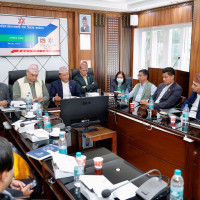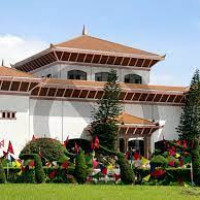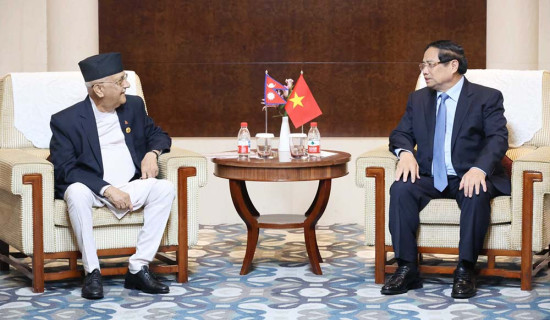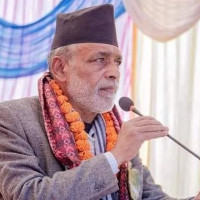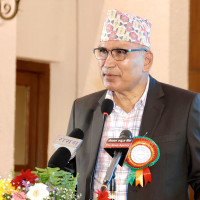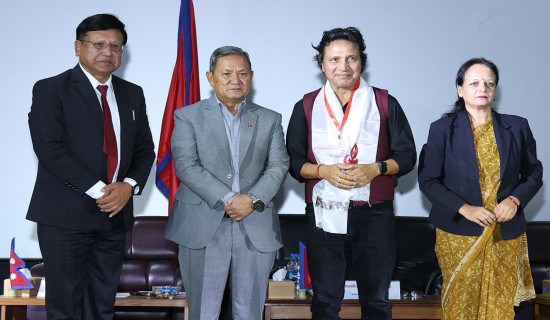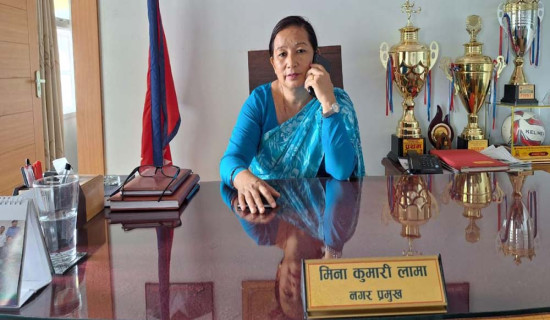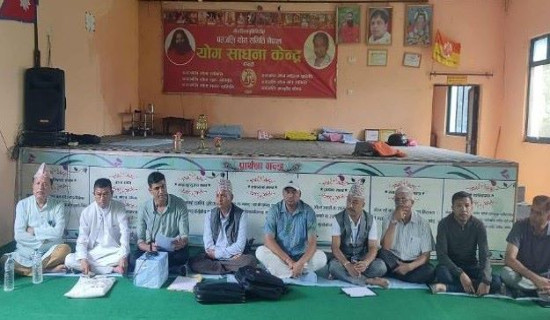- Monday, 1 September 2025
NC discusses constitution amendment
By A Staff Reporter,Kathmandu, July 9: The Nepali Congress, the country’s oldest grand party, concluded its decisive meeting of the Central Working Committee on Monday, renewing commitment to constitutional amendment, internal restructuring, and governance accountability. The party's Central Working Committee meeting convened at its Sanepa headquarters from June 30 to July 7, with a rare full-scale gathering after months of organisational stillness.
“During our deliberations, we decided to form a high-level task force to initiate dialogue on the constitution amendment,” said Min Bahadur Bishwakarma, central committee member and press coordinator for the party. “This committee will engage not only with various factions within our own party but also reach out to leaders of other political parties, constitutional experts, civil society representatives, and those who were directly involved in drafting the 2015 constitution,” he added.
During the meeting, Party President and former Prime Minister Sher Bahadur Deuba underlined the necessity of making the Constitution more dynamic to meet evolving political needs.
In a proposal, Deuba suggested redefining the largely ceremonial role of the Vice President, potentially Chair of the National Assembly. “We must explore ways to give the Vice Presidency a more functional role within the parliamentary system,” he said.
The move is seen as part of a broader effort by the NC to reclaim its reformist mantle, especially as its ruling alliance with the CPN-UML faces growing scrutiny. Deuba reassured members that the coalition remains stable, despite internal differences. “Minor disagreements should not be blown out of proportion. We are committed to completing our full term in office,” he said.
Bishwakarma stated that the party has submitted a set of urgent demands to the federal government, highlighting the need for decisive action across several key sectors.
“We are calling for stronger disaster preparedness systems, a fairer distribution framework in the gold trade, and immediate steps to address persistent issues in education and healthcare,” he said. “We urge the government to initiate immediate dialogue with the Medical Association and take swift measures to address the worsening drought in the Tarai-Madhes region,” he added.
Nepali Congress also expressed concern over delays in passing the School Education Bill. “Our education system cannot afford further stagnation, therefore we have asked the government to solve this as soon as possible” said Bishwakarma. Additionally, the party pushed for the introduction of a pension scheme for mountaineers after two decades of service, recognising their contribution to the nation.
“In the meeting, we have also demanded continued subsidies for sugarcane farmers and the urgent return of cooperative savings to their rightful depositors,” said Bishwakarma.
Additionally, the party called for an investigation into irregularities highlighted in the Civil Service Bill and reaffirmed its support for strengthening parliamentary credibility through transparent legislative processes.
The meeting was not without internal frictions. Several senior leaders voiced dissatisfaction over delays in holding the party’s general convention and renewing active memberships. General Secretary Gagan Kumar Thapa noted that the law mandates the renewal of membership be completed by December.
Another General Secretary, Bishwaprakash Sharma, issued a more direct challenge to the party’s old guard. Citing the lack of a single five-year prime ministerial tenure in Nepal’s democratic history, Sharma argued that the party winning the most direct and popular votes should lead the government. He also reminded attendees that the NC’s charter prohibits Deuba from contesting for a third term as party president. “It would be honourable for him to pave the way for others rather than seeking a sixth term as Prime Minister,” said Sharma during the meeting.
Vice Presidents Purna Bahadur Khadka and Dhanraj Gurung also called for stronger internal unity and a clampdown on factional indiscipline. Khadka warned, The Congress will not shield the undisciplined, while Gurung stressed the need to resolve internal disagreements before preparing for the party's upcoming general convention.
Bishwakarma also informed that the committee extended the deadline for active membership renewal to mid-October, and granted temporary extensions to the terms of several fraternal organisations such as the Nepal Students’ Union and Tarun Dal, which have failed to hold timely conventions. The leadership was also tasked with evaluating ministerial performance reports, and implementing reforms within the party’s discipline and training bodies. "The meeting has decided to hold the elections of fraternal organisations timely," he said.
Bishwakarma also highlighted the party’s focus on both national and international engagement. “We are committed to strengthening our public relations efforts at home while expanding our global footprint through the Nepali Public Relations Committee,” he said. “Building strong connections with the Nepali diaspora and international partners is essential to our long-term vision and this was also discussed during the meeting,” he added.
As the Nepali Congress navigates the competing pressures of coalition governance and internal reform, this week’s meetings signalled an attempt to strike a balance between legacy leadership and rising voices for change. The creation of the constitutional amendment task force, paired with calls for accountability and party renewal, marks what may be the beginning of a critical transformation for the party ahead of the 2084 general elections.




